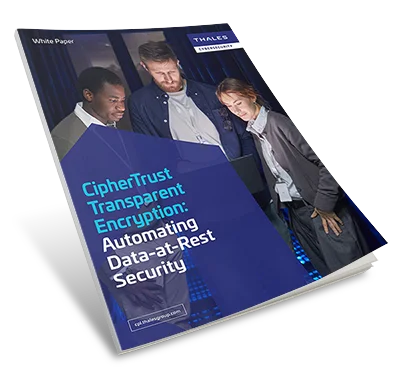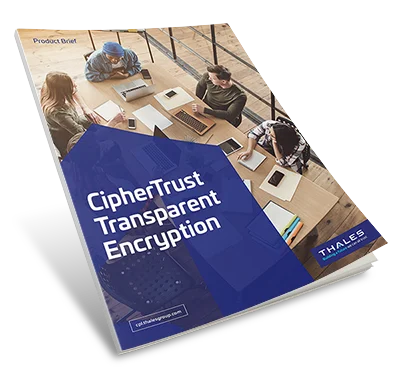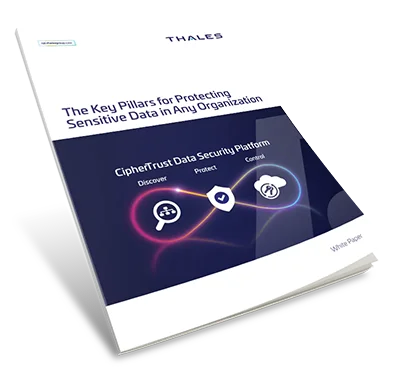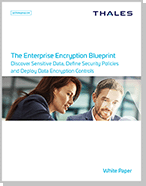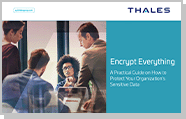ISO/IEC 27002:2013:
ISO/IEC 27002 is an international standard used as a reference for controls when implementing an Information Security Management System, incorporating data access controls, cryptographic control of sensitive data and key management.
Thales provides many of the solutions required to comply with this ISO, including:
- Encryption of data with access controls;
- Encryption key management and protection;
- Monitoring of data access to prevent compromise.
- Regulation
- Compliance
Regulation summary
Among the best practices called for in ISO 27002 are:
- Data access controls
- Cryptographic control of sensitive data
- Management and protection of encryption keys
- Recording and archiving “all significant events concerning the use and management of user identities and secret authentication information” and protecting those records from “tampering and unauthorised access”.
1ISO/IEC 27002, Second edition 2013-10-01: Information technology — Security techniques — Code of practice for information security controls. https://www.iso.org/standard/54533.html
Compliance summary
Thales can help you meet the standards in ISO/IEC 27002:2013 through:
- Access controls that let only credentialled users retrieve data
- Encrypting or tokenising data so that if it is stolen, it is meaningless and therefore useless to cybercriminals
- Centrally managing and securely storing encryption keys from across your organisation
- Protected security intelligence logs to identify irregular access patterns and breaches in progress
Access control
The CipherTrust Data Security Platform provides state-of-the-art user access control.
- Separation of privileged access users and sensitive user data. With the CipherTrust Data Security Platform, organisations can create a strong separation of duties between privileged administrators and data owners. CipherTrust Transparent Encryption encrypts files while leaving their metadata in the clear. In this way, IT administrators – including hypervisor, cloud, storage and server administrators – can perform their system administration tasks, without being able to gain privileged access to the sensitive data residing on the systems they manage.
- Separation of administrative duties. Strong separation-of-duties policies can be enforced to ensure one administrator does not have complete control over data security activities, encryption keys or administration. In addition, CipherTrust Manager supports two-factor authentication for administrative access.
- Granular privileged access controls. Thales’ solution can enforce very granular, least-privileged-user access management policies, enabling protection of data from misuse by privileged users and APT attacks. Granular privileged-user-access management policies can be applied by user, process, file type, time of day and other parameters. Enforcement options can control not only permission to access clear-text data, but what file-system commands are available to a user.
Data-centric protection
Thales protects the data itself through CipherTrust Transparent Encryption with integrated Key Management for data at rest, CipherTrust Application Data Protection, CipherTrust Tokenisation, and more. These techniques make the data meaningless and worthless without the tools to decrypt it.
Unified key management
CipherTrust Enterprise Key Management from Thales provides a robust, standards-based platform for managing encryption keys from disparate sources across the enterprise. It simplifies the management and administrative challenges around encryption key management to ensure that keys are secure and always provisioned to authorised encryption services.
Security intelligence logs
Thales lets the enterprise monitor and identify extraordinary data access. CipherTrust Security Intelligence logs are detailed management logs that specify which processes and users have accessed protected data. They specify when users and processes:
- Accessed which data, under which policies
- If access requests were allowed or denied
- Expose when a privileged user submits a command like 'switch users' in order to attempt to imitate the credentials of another user
Sharing these logs with a security information and event management (SIEM) platform helps uncover anomalous patterns in processes and user access, which can prompt further investigation.
Other key data protection and security regulations
GDPR

Regulation
Active Now
Perhaps the most comprehensive data privacy standard to date, GDPR affects any organisation that processes the personal data of EU citizens - regardless of where the organisation is headquartered.
PCI DSS

Mandate
Active Now
Any organisation that plays a role in processing credit and debit card payments must comply with the strict PCI DSS compliance requirements for the processing, storage and transmission of account data.
Data Breach Notification Laws

Regulation
Active Now
Data breach notification requirements following loss of personal information have been enacted by nations around the globe. They vary by jurisdiction but almost universally include a “safe harbour” clause.

